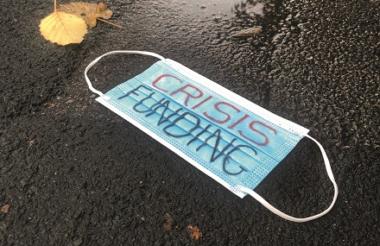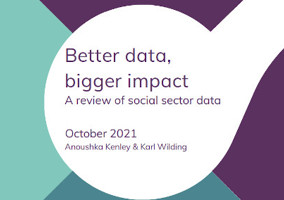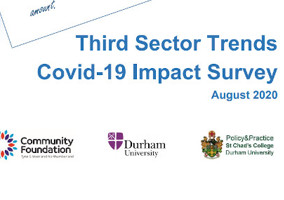A typical charity saw its income fall by a “sizeable” 15% in the first few months of the pandemic, according to research out today.
The quarter of charities that were most financially fragile saw a 40% drop, according to a report entitled Patterns of Financial Vulnerability in English and Welsh Charities After the Onset of the Pandemic.
David Clifford and John Mohan from the Third Sector Research Centre at the University of Birmingham, and Alasdair Rutherford at the University of Stirling, published the paper as part of an ongoing project about the impact of the pandemic on charities. The project is also supported by the University of Southampton, the Economic and Social Research Council and NCVO.
Researchers looked at data from nearly 50,000 charities who have already submitted financial data to the Commission for months during the pandemic.
Their analysis suggests that most charities experienced worsening finances as a result of the pandemic, in a much more dramatic way than the 2008-09 recession.
‘Much more sizeable annual decline in income than in the Great Recession’
When researchers looked at the accounts for charities where at least three months of their financial year included the pandemic, they found a “highly distinctive” change in their income levels when compared to 2019.
The median, or typical charity, saw their income fall by 15% when adjusted for inflation.
“Notably this is a much more sizeable annual decline in income than those annual declines associated with the Great Recession and subsequent period of austerity,” the report said.
Between 2009 and 2014, the typical charity saw their income fall by between 1% and 4% each year.
More vulnerable charities more badly affected
Charities deemed to be the most vulnerable, those in the 25th percentile of the annual growth rate distributions, experienced an even sharper fall in their income.
These charities saw their income fall by 43%, in real terms, which is also “a much more sizeable decline than experienced during the Great Recession”.
Between 2009 and 2014, these charities saw their incomes fall by between 16% and 22%.
Smaller charities ‘most significantly impacted’
The report says that smaller charities, those with an income of less than £100,000, “have been the most significantly impacted since they have seen the largest relative declines in income”.
It says that Parent Teacher Associations appear to have been particularly hit, along with arts and recreation charities, probably due to the timing of lockdowns and the sorts of income these organisations rely on.
Becoming more vulnerable
Researchers also found that more charities experienced a financial shock last year. Again smaller charities were worse affected, although it also shows that things have been getting steadily more volatile for the smallest for the last 20 years.
By measuring how many charities where their income exceeds expenditure by more than 25%, or three months’ expenditure, researchers say there is “evidence of a worsening situation”.
During the pandemic, just over 30% charities with incomes of less than £10,000 saw their expenditure exceed income by more than 25%. This is up from around 20-25% pre-pandemic.
The report also looks at the proportion of charities with falling income over a three-year period. For all sizes of income there was a marked increase in those seeing a drop of 25% or more in 2020.
“Although there are clear indicators that 2020’s results are substantially worse than in previous years,” the report says, “it also appears that the proportion of organisations experiencing financial difficulty was on the rise prior to 2020.”
Charities can adapt and recover
Responding to the research at an event yesterday, Nicole Sykes, director of external affairs at Pro Bono Economics (PBE), highlighted that after the financial crisis at the beginning of the decade charity finances did “rebound”.
She said the evidence from PBE’s surveys is that charities are already adapting.
“Just last quarter 44% of charities told us that they were investing more in digital and IT infrastructure,” she said.
Related articles












